-
Use Cases
-
Resources
-
Pricing
Founding and Early Development
Construction of the First Temple in Jerusalem
957 BCE
% complete
King Solomon completes the construction of the First Temple in Jerusalem, which becomes the central place of worship for the ancient Israelites and the focal point of Jewish religious life.
Image source: Solomon's Temple
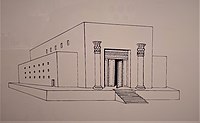
Life of Siddhartha Gautama
563 BCE
% complete
Siddhartha Gautama, later known as Gautama Buddha, is born in Lumbini, Nepal. He goes on to become the founder of Buddhism and the central figure of the Buddhist faith.
Image source: The Buddha
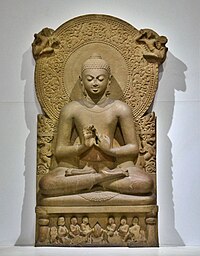
Life of Confucius
551 BCE - 479 BCE
% complete
Confucius, a Chinese philosopher and teacher, is born. His teachings form the basis of Confucianism, a major religious and ethical system in East Asia.
Image source: Confucius

Compilation of the Quran
609 CE - 632 CE
% complete
The Quran, the central religious text of Islam, is compiled during the lifetime of the Prophet Muhammad, encompassing his revelations and teachings.
Image source: Quran

Birth of Guru Nanak
1469 CE - 1539 CE
% complete
Guru Nanak, the founder of Sikhism, is born in present-day Pakistan. His teachings and spiritual insights lay the foundation for the Sikh faith.
Image source: Guru Nanak

Baha'i Faith Established
1863 CE
% complete
Bahá'u'lláh, the founder of the Bahá'í Faith, publicly announces his mission and teachings, which emphasize the unity of humanity and the need for global peace and justice.
Image source: Baháʼí Faith
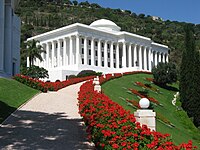
Expansion and Spread
Conversion of Emperor Constantine to Christianity
312 CE
% complete
Emperor Constantine the Great converts to Christianity, marking a significant turning point in the spread and acceptance of Christianity within the Roman Empire.
Image source: Constantine the Great

Founding of the Jesuit Order
1540 CE
% complete
Ignatius of Loyola establishes the Society of Jesus, also known as the Jesuits, a Catholic religious order dedicated to education, missionary work, and intellectual pursuits.
Image source: Jesuits
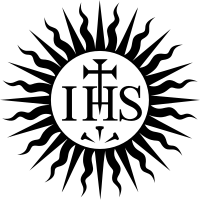
Election of Pope Francis
2013 CE
% complete
Cardinal Jorge Mario Bergoglio of Argentina is elected as Pope Francis, becoming the first pope from the Americas and emphasizing a more inclusive and compassionate approach within the Catholic Church.
Image source: Pope Francis

Interactions and Influences
Great Schism
1054 CE
% complete
The Great Schism occurs, leading to the formal split between the Eastern Orthodox Church and the Roman Catholic Church, resulting in the formation of two distinct Christian traditions.
Image source: East–West Schism

Edict of Nantes
1598 CE
% complete
King Henry IV of France issues the Edict of Nantes, granting religious freedom and tolerance to Protestants in France, ending decades of religious conflict.
Image source: Edict of Nantes

Salem Witch Trials
1692 CE - 1693 CE
% complete
The Salem Witch Trials take place in colonial Massachusetts, resulting in the execution of several individuals accused of witchcraft, highlighting the dangers of religious hysteria and intolerance.
Image source: Salem witch trials
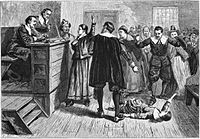
Indian National Congress
1885 CE
% complete
The Indian National Congress is founded, becoming a prominent political organization that advocates for independence from British colonial rule and represents various religious and cultural groups in India.
Image source: Indian National Congress

Islamic Revolution in Iran
1979 CE
% complete
The Islamic Revolution in Iran leads to the overthrow of the monarchy and the establishment of an Islamic republic, significantly impacting the political and religious landscape of the country.
Image source: Iranian Revolution

Publication of "The Satanic Verses"
1988 CE
% complete
Salman Rushdie's novel "The Satanic Verses" is published, leading to widespread controversy and protests due to its perceived blasphemy against Islam, highlighting the tensions between freedom of expression and religious sensitivities.
Image source: The Satanic Verses
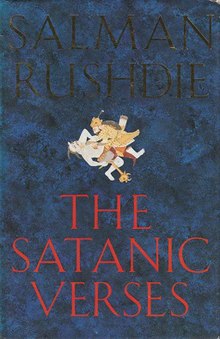
Fall of the Berlin Wall
1989 CE
% complete
The fall of the Berlin Wall symbolizes the end of the Cold War era and the reunification of East and West Germany, allowing for greater religious freedom and exchange of ideas.
Image source: Berlin Wall

Dalai Lama Receives Nobel Peace Prize
1989 CE
% complete
The 14th Dalai Lama, Tenzin Gyatso, is awarded the Nobel Peace Prize for his nonviolent efforts to resolve the Tibetan struggle for independence and promote global peace and understanding.
Image source: 14th Dalai Lama
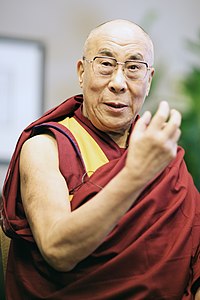
Doctrinal and Theological Developments
Protestant Reformation
1517 CE
% complete
Martin Luther, a German monk, publishes his Ninety-Five Theses, challenging the practices and authority of the Roman Catholic Church and sparking the Protestant Reformation.
Image source: Reformation
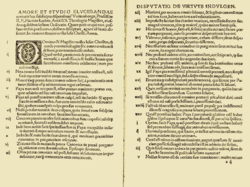
First Vatican Council
1869 CE - 1870 CE
% complete
The First Vatican Council is convened by Pope Pius IX, leading to the proclamation of the doctrine of papal infallibility and other significant decrees, reaffirming the authority and teachings of the Roman Catholic Church.
Image source: First Vatican Council

Second Vatican Council
1962 CE - 1965 CE
% complete
The Second Vatican Council is held, leading to significant reforms and changes within the Roman Catholic Church, including liturgical revisions, increased interfaith dialogue, and a renewed emphasis on social justice.
Image source: Second Vatican Council

Key Facts
- Hinduism is one of the oldest religions in the world, with roots dating back over 4,000 years.
- Siddhartha Gautama, also known as the Buddha, founded Buddhism in the 5th century BCE.
- Judaism traces its origins back to the covenant between God and Abraham around 1800 BCE.
- Christianity emerged in the 1st century CE, following the teachings of Jesus Christ.
- Islam was founded by the Prophet Muhammad in the 7th century CE.
Source
This History of Major Religions timeline was generated with the help of AI using information found on the internet.
We strive to make these timelines as accurate as possible, but occasionally inaccurates slip in. If you notice anything amiss, let us know at [email protected] and we'll correct it for future visitors.
Create a timeline like this one for free
Preceden lets you create stunning timelines using AI or manually.
Customize your timeline with one of our low-cost paid plans
Export your timeline, add your own events, edit or remove AI-generated events, and much more
Free
$
0
free forever
No credit card required.
Basic
$
10
/month
billed annually
Cancel anytime.
Pro
$
16
/month
billed annually
Cancel anytime.
Common Questions
Can I cancel anytime?
Yes. You can cancel your subscription from your account page at anytime which will ensure you are not charged again. If you cancel you can still access your subscription for the full time period you paid for.
Will you send an annual renewal reminder?
Yes, we will email you a reminder prior to the annual renewal and will also email you a receipt.
Do you offer refunds?
Yes. You can email us within 15 days of any payment and we will issue you a full refund.
What if I have more questions?
Check out our pricing docs or send us an email anytime: [email protected].